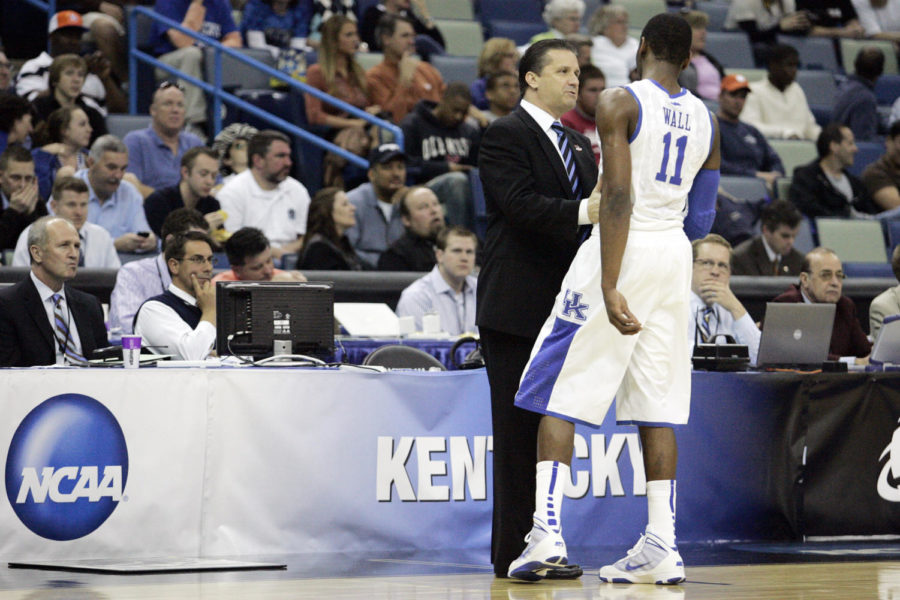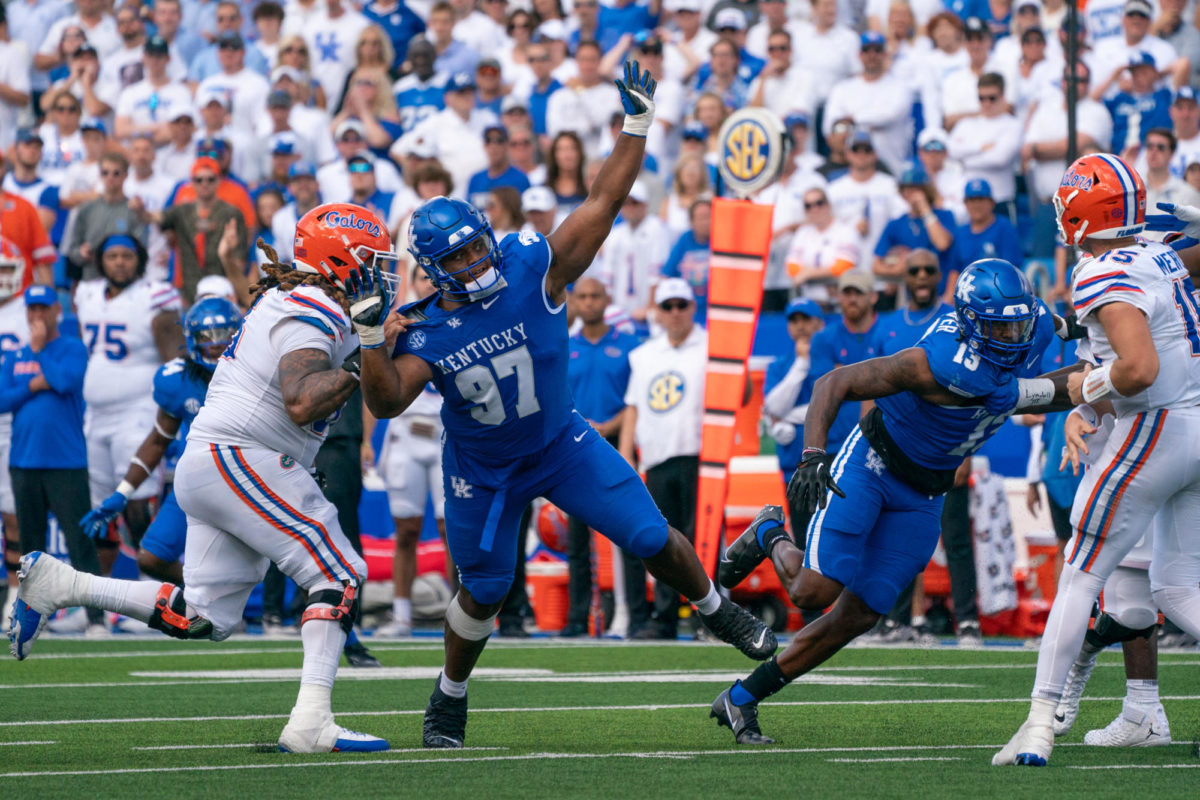The Defender
Then-sophomore DeAndre Liggins plays defense against LSU at Pete Maravich Assembly Center on Saturday, Feb. 6, 2010. Photo by Scott Hannigan
January 3, 2011
In NBA Jam, you catch fire with a burst of offense. SportsCenter may make occasional reference to a stellar defensive effort, but probably will be showing clips of dunks and three-pointers while doing so. Even watching games, it’s much easier focusing on the tangible elements of the game you can see in the box score — mainly points — in making conclusions about the game.
Yes, offense is the appealing and seductive half of basketball. But there’s another half just as equal, and it’s what DeAndre Liggins has rapidly become synonymous with: defense.
“Whoever you put him on, he seems to lock him down,” Darius Miller said.
It certainly seemed to be that way in UK’s win over Louisville. The 6-foot-6 Liggins started on 5-foot-11 Peyton Siva and shut him down; then, when Preston Knowles had an outburst of scoring, Liggins switched to him and promptly shut him down, too.
“I told coach, Let me guard (Knowles),” Liggins said. “I think I stopped the bleeding. He had it going for them, and he was their only offense at that point, and I knew if I stopped him I would have slowed their team down.”
Liggins only scored two points in that contest, but was cited as the difference in the game by head coach John Calipari. A believer in plus/minus, Calipari played Liggins for 39 minutes; while he wasn’t scoring points, he wasn’t giving up many, either.
“Everybody wants to score, but if my shots are off I’m blessed that I can defend,” said Liggins, who would probably be averaging about 4.3 floorburns per game, if such statistics were kept. “Some players don’t have that. If their offense is not going and they can’t defend, they have to come out.”
Liggins doesn’t usually have that problem. His defense seems to be constant, the squeak of his shoes and flash of his feet a staple of his game as much as anything else. It’s something he’s always taken pride in. He took charges in high school, even as he was the playmaker and star of his team. The pride has only intensified as defense has become his defined role.
“I hate when I contest a shot and somebody hits over me,” Liggins said. “I think I did a bad defensive job.”
His defense, which usually is on the opponent’s best player, is valuable to a team still buying into the defensive side of the court. The 6-foot-6 Liggins guarded the quick 5-foot-11 Siva just fine, although he said it was difficult to guard smaller players. Anytime a coach knows he has one player he can stick on a guard or forward and be fine with it is a good thing.
While he hasn’t stopped everybody this year — Connecticut’s Kemba Walker, for example — Liggins has a defensive philosophy that makes it sound like he is tying to guard Michael Jordan.
“The thing with me is not stopping my opponent, but containing them,” Liggins said. “I know the players I’m going to be guarding will be the best on their team, and I know I won’t stop every player every night. I want to contain him and make it hard for him.”
Liggins rarely leaves games this year, but it wasn’t long ago that he was on the verge of leaving the program. After his infamous refusal to enter a game his freshman year, he was suspended for nine games last year for unspecified disciplinary reasons. In the foreword to Mark Krebs’ book, Calipari said the hardest decisions he had to make during the first moments of his UK coaching career was on returning players. Calipari was told to get rid of Liggins; instead, he kept him as plenty of others exited the program.
“Because I knew him from high school, I knew some of his issues and I thought I could get through to him,” Calipari said, regarding why he kept Liggins. “And I thought we could get him to play the way we wanted him to play, that we could win him over, that he had the things that I like to see in a player, but he had to change.”
The coach and the sometimes troubled player had to build a rapport after the decision to keep Liggins in the program was made.
“He didn’t trust and probably rightfully so,” Calipari said. “Different coaches told him when you come here you’re going to do this, this, this and this, and then none of it happened … I wouldn’t have trusted me either.”
Liggins does now. And Calipari recognizes the effort Liggins puts in on the unglamorous defensive end, and wants to reward him for it.
“I’ve been trying to get him easy baskets late in games,” Calipari said. “Because I want him to have both, be a stopper and a scorer.”





























































































































































